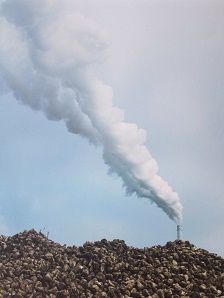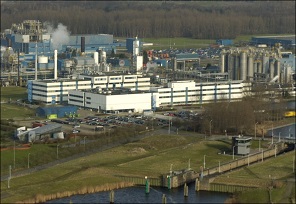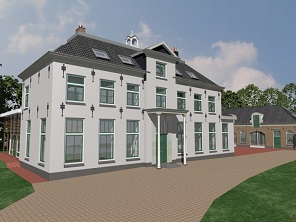‘Companies that consider the construction of a factory for biobased bulk chemicals, will have to consider Europe. Some years ago, this was quite different. Nobody even considered the option of going to Europe; the United States, Brazil and Thailand were the places to be. But that has changed fundamentally. The reason: the extra supply of sugar that will be available in North-western Europe soon.’ Says Ton Runneboom, who recently retired as the chairman of the Dutch Biorenewable Business Platform.

Deloitte
Ton Runneboom took the initiative for the now well-known Deloitte report: ‘Opportunities for the fermentation based chemical industry in Northwestern Europe’ that was launched at Rabobank in Utrecht, last September. This report clarified in one blow that Europe will have an ample production of biomass in the near future, and that these products will have to be processed in Europe itself. At the release of European sugar quota in 2017, farmers in NW Europe will produce at least another 5 million tons of sugar, at world market prices. ‘An amount that is largely sufficient for the feedstock of a biobased bulk chemical industry. Companies will have to process the feedstock locally, transporting huge amounts of biomass across the globe is pointless and will ruin any business case.’
 GI Dynamics
GI Dynamics
‘Of course, the amount of feedstock is not the only reason why the biobased bulk chemical industry can and will take off in Europe,’ says Ton Runneboom, ‘people’s mind-sets will have to be tuned to these opportunities. Until quite recently, strategic managers did not need to bother their CEOs with plans to construct biobased bulk chemical plants in Europe, but the Deloitte report changed this. Moreover, the best technology to produce biobased ethylene from bio-ethanol – with its train of ethylene oxide and ethylene glycol – has by now come in one hand: that of GI Dynamics.’ Sure, there are several companies that have developed this technology, but they keep it to themselves. GI Dynamics is the only one that offers this green technology on the market. One of the interested customers is Coca-Cola, that needs biobased ethylene glycol for its plant bottle. An Australian consortium runs a $ 750 million project for the production of ethylene glycol from ethanol – through the intermediate of ethylene oxide – using this technology.
Interest
Since the Deloitte study, GI Dynamics has had a number of requests for the construction of biobased chemical plants in Europe. Sabic for instance investigates the possibility of using fermentative technologies for a plant to be constructed on its Bergen op Zoom site. Sabic is already in the business of cracking a limited volume of biodiesel in an existing cracker in Geleen, acquired from DSM.

‘In total, the volume of the projects at stake amounts to an investment of several billion Euros. Generally, processing one million tons of dry biomass will require an investment of about € 1,5 billion. In the near future, Europe will produce an additional amount of at least 5 million tons of sugar; it cannot eat that amount and will have to sell it on the world market or process it. This will require an investment of about € 7.5 billion, a corresponding number of man-years for construction, and in addition maintenance (say 3%) and service. Will that money be available? Yes, because at present it flows to Brazil, Thailand and the US, and that allows Europe to make the most of its opportunities, for employment – at least during construction – and as a contribution to the European economy.’ Therefore, hopes are high. So high that Deloitte was reluctant to publish them in this form in its report, and asked Ton Runneboom to voice these numbers at the presentation of its report in Utrecht. But meanwhile, the Deloitte report has made its way to the desks of decision makers in chemical companies, and an increasing number of people get convinced of Europe’s opportunities. Whereas just recently, the future of chemical industry – and surely that of biobased bulk industry – in Europe looked bleak and all parties hesitated to invest, this future seems to have brightened up all of a sudden.
Ton Runneboom: industry is making a mental turn
‘All of a sudden?’ says Ton Runneboom. ‘That’s not how things work of course, that needs long talks; the idea that there are opportunities has to grow in people’s minds, in Europe too. That is what’s going on right now. And then it will take at least five years to build those plants, and first of all companies will have to acquire funds. And that can only happen if the prospects are good. Industry is now in the process of making this mental turn. At any rate, any decision making process from now on will have to take into account Europe as well.’
‘The obvious question is: what have governments contributed to this? Answer, quite a lot actually by removing barriers in the new European Common Agricultural Policy. In particular by lifting sugar quota. But now, Europe will have to formulate an industry policy directed towards the build-up of that biobased chemical industry on the basis of indigenous feedstock. The question is now: where should that chemical industry be located? In North-western Europe, at any rate, because that is where the sugar beet is produced. The Netherlands might have a strong position in that game, as it will produce a major part of that extra beet harvest (3 million tons).’
Ton Runneboom: ‘I have high hopes for Europe in the decades to come. Our continent has very good agricultural land and excellent agricultural knowledge and technology. And we have an ample supply of feedstock for a biobased bulk chemical industry. Chemical technology for it is available worldwide. There is nothing that could stop Europe, apart from our own hesitance and lack of self-confidence.’

As Ton Runneboom now said farewell to chemical industry, he is going to devote himself to develop care for elderly persons having memory problems, and/or problems overseeing one’s own life: a combination of non-independent private housing for the aged, and care provided by a regular care organisation. In this way, the project does not depend on government money, whereas the regular care organisation can nevertheless provide care to a privately owned care organisation. For the clients and their relatives, this housing and care scheme is more personal and more benign than regular care. The concept is tailor-made for elderly people who would otherwise stay in their own homes.
www.huishunderen.nl (in Dutch)
